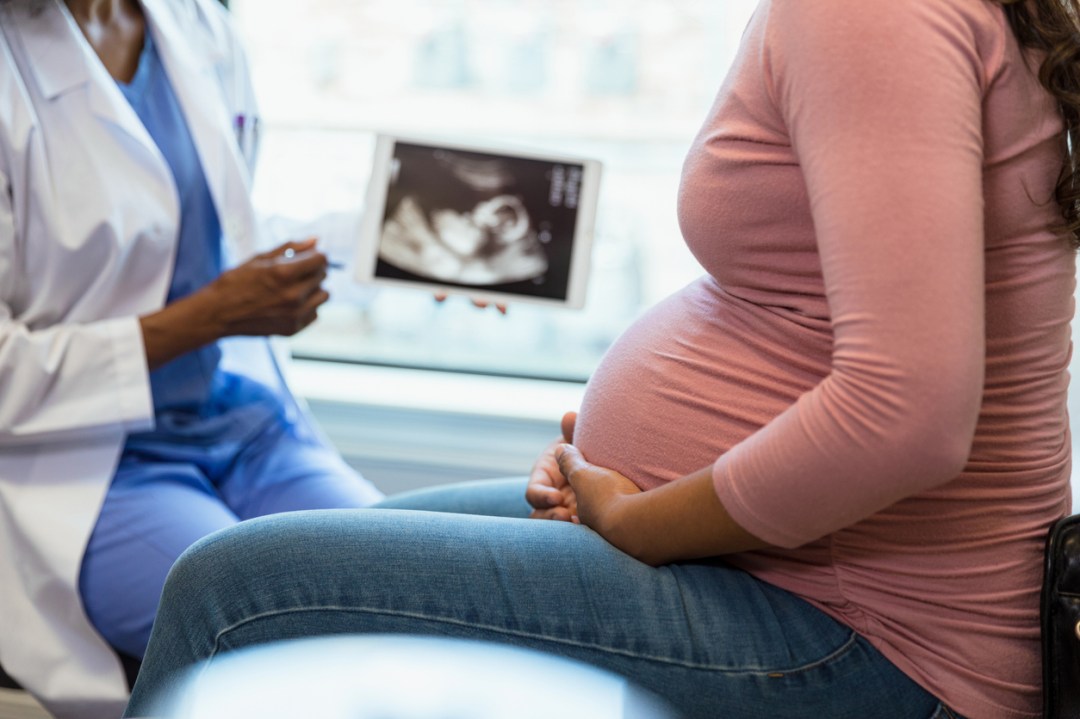New mothers everywhere, rejoice, for the NHS has your back. And your sanity, apparently. Data released last week shows that 64,000 women accessed specialist perinatal mental health services last year, a rise in demand of 10 per cent compared to 2023. Describing the newly provisioned services as ‘lifesaving’ to perinatal women – the period encompassing pregnancy and one year postpartum– the NHS went on to detail the importance of maternal mental health, adding that it was ‘vital that women did not suffer in silence’ or ‘feel stigmatised’.
Given that suicide is still the leading cause of maternal death in the UK, access to mental health support should be a welcome development
Consequently, perinatal mental health teams are now available in every part of England, offering perinatal women (and, for the first time, those hoping to conceive) access to psychologists, peer support workers and midwives. Headline causes of referrals to the services are reported to be pre- and post-partum depression, OCD and anxiety surrounding birth, known as the appropriately sinister condition, tokophobia.
Given that suicide is still the leading cause of maternal death in the UK, access to mental health support should be a welcome development. Such investment marks a sea change from the ‘stubborn gospel’ NHS narrative of maternal mental health up to this point, often characterised by a midwife telling you in a sing song voice that ‘baby’ is a ‘little angel’ and repeatedly referring to you as ‘Mum’ while you lie half-naked on an examination table.
This gospel has been remarkably intact ever since Victor Hugo uttered in the nineteenth century that ‘mothers are fondest of the child that has caused them the greatest pain’ and finds its modern-day iterations on Instagram amid pictures of crashed-out postpartum women lying on their sofas ‘wearing’ their babies describing themselves as ‘blessed’.
Maybe – just maybe – this hymn sheet is headed for the wastepaper basket, a laudable approach in a country where women don’t even want to get up the duff in the first place. Because make no mistake: getting real about the underbelly of pregnancy, childbirth and postpartum care is a gamble in a country where birthrates are falling fast (a record low of 1.44 children per woman in 2023). We are faced with a childbearing generation who are perhaps the most anti-natalist on record and an ageing cohort of millennials who find themselves reproductively challenged after glass-ceiling neoliberal feminism left their egg reserves dwindling.
Sadly, no amount of mental health hubs, peer support workers or cups of tea can change the fact that modern motherhood suffers from systemic problems that can’t be fixed with the sop of a mental health hub.
Obstinate issues connected to the institution of motherhood are far-reaching with inroads stretching back at least a century and will be difficult to shift. Blame Dr Spock, who from the 1940s onwards, recommended a maternal ideal that had child-centered benevolence at its heart, exhorting mothers to maintain nurturing and loving relationships with their children, a theory which led to Dr Bill Sears’s more extreme ‘attachment parenting’, an approach that has done more damage to maternal mental health – and maternal sleep – than perhaps anything else.
If that all feels too arcane then why not go large and blame feminism itself, a movement that has, as Lucy Jones so eloquently puts it in Matrescence, ‘neglected motherhood and maternal subjectivity’ altogether since the inescapable gender difference associated with motherhood maintains male dominance. With all this in mind, it seems hardly surprising that mothers are accessing perinatal mental health services in their droves. What is more surprising is that the NHS believes it can fix the issue at all. Maternal experience may now be acknowledged but, like attempting to change a ship’s course, it may prove a despondent task.
During both my pregnancies and their sleepless and strange aftermaths, I attempted to access maternal mental health care. On both occasions – six years apart – I was listened to with concern and visible compassion by the NHS practitioners I saw. Their recommendations, which ranged from having a hot bath, to watching Strictly with a cup of tea, to asking ‘Dad’ to do a night shift felt so laughably inadequate as to temporarily lift me out of my torpor.
In the end, during perinatal period number two, it was a female GP – and mother of three – who gave me the best ‘mental health’ service of all: ‘just put her in the cot and shut the door’ she said calmly, ‘it’s more important that you talk to me’. In that moment, I wasn’t talking to a mental health specialist or a psychologist or a peer support worker, I was simply talking to another mother. I think we have forgotten how to do that. Therein would be reason to rejoice.








Comments